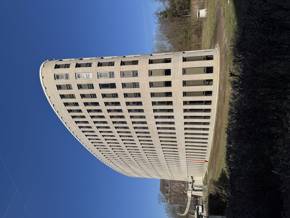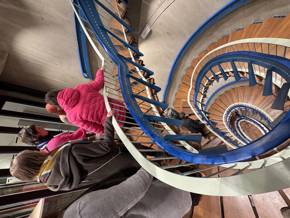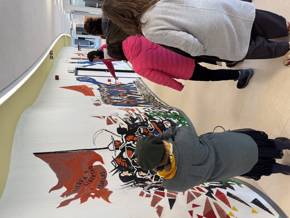Ethical, Legal and Security aspects of RDM
By Michiel De Vydt
On Tuesday 18 February 2025, a total of 20 KH members attended our second Community Day of the academic year. We invited five speakers to present research cases that illustrate some of the ethical dilemmas or the legal intricacies that data stewards face when supporting researchers with their research.

Ethical, Legal and Security aspects of RDM
On Tuesday 18 February 2025, a total of 20 KH members attended our second Community Day of the academic year. We invited five speakers to present research cases that illustrate some of the ethical dilemmas or the legal intricacies that data stewards face when supporting researchers with their research.
For example, to name just three of the situations that were discussed:
- What should researchers do when the video diary material sent by respondents inadvertently captures illegal behavior in the background?
- Are researchers allowed to publish screenshots of social media posts made by individuals? What if they are made by non-profit organizations?
- Typically, transcriptions of historical manuscripts belong to the public domain. But what if the transcribing historian modernized the spelling, added commentary or (arguably) made some creative decisions when transcribing handwritten words that are difficult to decipher?
These are situations that invite dialogue and critical reflection, as there are often no clear-cut, general answers to questions like these. For example, even anonymized tweets when quoted literally can be searched through online search engines, leading back to the original poster. This could cause them to become identifiable in the wider public sphere, when they were previously relatively low-profile, and therefore put them at greater risk of trolling and other kinds of violence than they would previously have been. Even if the terms and conditions of the platform in question allow third party use, there are often strong ethical considerations to make. In short, data stewards, in many cases, cannot rely on black and white standard answers but need to take specificities into account before they can make advisory judgments. Furthermore, due to the large variety of research disciplines, data collection methods, and changing policy landscapes (including end-user license agreements of social media platforms), a need for specialization inevitably arrises.
One of the comments I overheard from one of our newer data stewards was that it is nice to realise that they are not the only ones who get challenged by tricky ethical and legal concerns. A key purpose of the Knowledge Hub community is therefore to continue to provide a platform where data stewards can ask advice on tricky cases, share and combine their knowledge—perhaps not always in full detail, but at least to point each other in the right direction. Our Basecamp message board and live Community Days are up to that task.
Social activity
After our lunch, our social activity was a tour of the recently renovated Braem building at the VUB campus. This building was designed by Belgian architect Renaat Braem, who took an internship with famous architect Le Corbusier. Colorful political murals painted by Braem himself decorate the interior walls. This building now houses the VUB rector and central administration.



About our Community Days
The KH Live Days are small conferences we organize 3-4 times every academic year. They are great opportunities to get in touch with fellow data stewards (or professionals in the field of Open Science & RDM more generally). Everyone who is a member of our Basecamp platform is very much welcome.